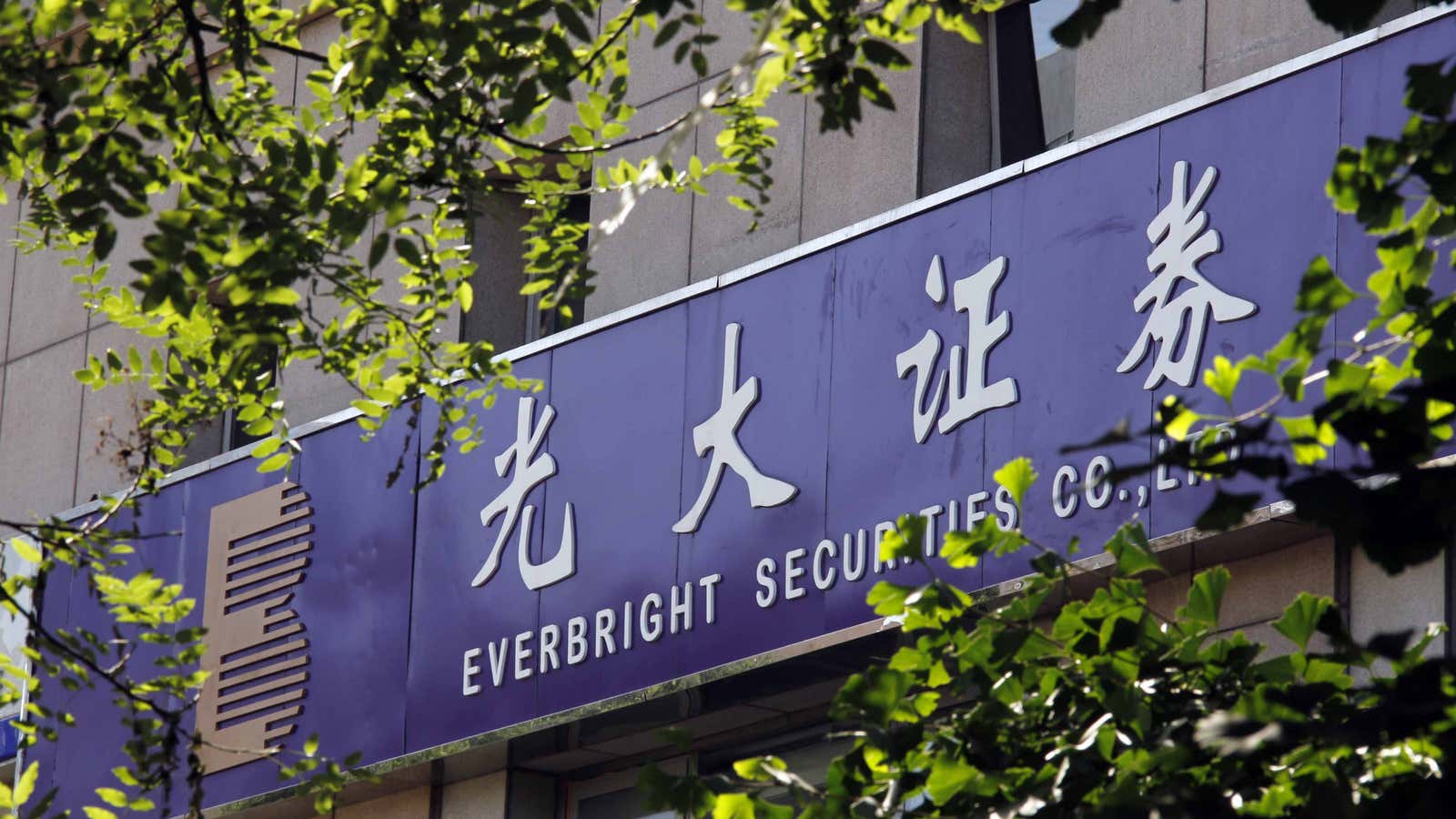China Everbright Securities, the trading firm that singlehandedly roiled Shanghai’s stock market with a technical problem on Friday (paywall), admitted responsibility for a second error on Monday. Specifically, a bond trader’s “fat finger” mistakenly added 25 basis points to the yield of government bonds in a 10 million yuan ($6.32 million) trade.
On Monday, regulators banned Everbright from proprietary trading for three months for Friday’s trading error, which created and then destroyed an estimated $100 billion in share value in minutes as the Shanghai stock exchange spiked 5.6%.
Adding to Everbright’s woes, the broker’s parent company China Everbright Group, a state-run conglomerate, is now tied to a US regulatory probe into JP Morgan’s hiring practices in China. The investment bank hired the son of Everbright Group’s chairman, and then won advisory roles on several deals, including the IPO of an alternative energy subsidiary and the buyout of a media firm, according to The New York Times. China Everbright’s banking unit plans to raise several billion dollars in a Hong Kong listing this year, and JP Morgan is competing for the role.
This marks a decisive fall from the heady days of August 2009, when Everbright Securities’s Shanghai IPO raised $1.6 billion on 15% of its equity. At the time, the IPO was hailed as an opportunity for investors around the world to ride China’s equity markets, which had just bounced back from the global financial crisis. Since then, the Shanghai Stock Exchange’s main index has plummeted more than 30%, and the value of Everbright’s public equity has dropped more than 50%, part of a sell-off reflecting a slowdown in China’s economy and fears of a housing and credit bubble.
Even before Monday’s trading error, financial experts were pointing to Everbright’s trading problems as a sign of what’s wrong with China’s stock markets. After Friday’s stock spike in Shanghai, “widespread concerns have been aroused” about “systematic deficiencies within China’s securities market,” Zhongli Yin, deputy director of research, financial markets, at the Chinese Academy of Social Sciences, Institute of Finance, wrote in the China Securities Journal (link in Chinese).
In January, Everbright Securities was among the brokers reprimanded by China’s securities regulator for not providing enough information about companies on whose stock offerings it advised. In April, Hong Kong’s stock market regulator fined China Everbright Securities for opening new accounts without vetting the customers or otherwise ensuring compliance with securities law.
This litany of bad news doesn’t include the bottom line: total trading loss for Everbright Securities from Friday’s mistake could be between 300 million and 400 million yuan (about $50 million to $65 million), or 15-20% of company’s 2012 pre-tax profits, Citigroup analysts estimate.
Jennifer Chiu contributed reporting.
